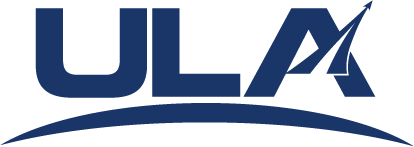News Archive
United Launch Alliance and Boeing Complete CST-100 Launch Vehicle Adapter Preliminary Design Review
Centennial, Colo. (April 5, 2013) – United Launch Alliance (ULA), in cooperation with its prime contractor, The Boeing Company, recently completed the preliminary design review (PDR) for the Crew Space Transportation (CST)-100 Launch Vehicle Adapter (LVA).
Teams from ULA and Boeing completed the design review to NASA which evaluated the new spacecraft’s loads and heritage rocket capabilities to safely launch humans into orbit. The LVA is being designed by ULA and provides the connection between the CST-100 to the launch vehicle just above the second stage.?
“This review builds upon the great progress we have made with our Boeing and NASA team members to human rate the commercially developed Atlas V launch vehicle,” said George Sowers, ULA's vice president of human launch services. “We recognize that crew safety is critically important and ULA launch vehicles provide the highest confidence, lowest risk solution for human spaceflight.”
This review is the one of the milestones ULA has helped Boeing complete under its Commercial Crew Integrated Capability (CCiCap) Space Act Agreement with NASA. Under NASA’s CCiCap program, two of the three prime contractors, The Boeing Company and Sierra Nevada Corporation (SNC), have selected ULA's Atlas V rocket as their launch vehicle.
“The review was an outstanding integrated effort by the Boeing, ULA and NASA team," said John Mulholland, vice president and program manager of Boeing Commercial Programs. “The ULA design leverages heritage hardware to integrate the CST-100 with Atlas V, setting the baseline for us to proceed to wind tunnel testing and the launch segment PDR in June.”
With 37 successful missions spanning a decade of operational service, the commercially developed Atlas V is uniquely qualified to provide launch services for the Crew Transportation System. Because Atlas V is already certified by NASA to fly the nation’s most complex exploration missions, as well as critical Air Force and National Reconnaissance Office national security missions, ULA is able to provide a wealth of design implementation, detailed system and sub-system analysis, qualification, certification and flight data.
ULA program management, engineering, test and mission support functions are headquartered in Denver, Colo. Manufacturing, assembly and integration operations are located at Decatur, Ala., and Harlingen, Texas. Launch operations are located at Cape Canaveral AFS, Fla., and Vandenberg AFB, Calif.
For more information on ULA, visit the ULA Web site at www.ulalaunch.com, or call the ULA Launch Hotline at 1-877-ULA-4321 (852-4321). Join the conversation at www.facebook.com/ulalaunch and twitter.com/ulalaunch.
United Launch Alliance and Boeing Complete CST-100 Launch Vehicle Adapter Preliminary Design Review
Centennial, Colo. (April 5, 2013) – United Launch Alliance (ULA), in cooperation with its prime contractor, The Boeing Company, recently completed the preliminary design review (PDR) for the Crew Space Transportation (CST)-100 Launch Vehicle Adapter (LVA).
Teams from ULA and Boeing completed the design review to NASA which evaluated the new spacecraft’s loads and heritage rocket capabilities to safely launch humans into orbit. The LVA is being designed by ULA and provides the connection between the CST-100 to the launch vehicle just above the second stage.?
“This review builds upon the great progress we have made with our Boeing and NASA team members to human rate the commercially developed Atlas V launch vehicle,” said George Sowers, ULA's vice president of human launch services. “We recognize that crew safety is critically important and ULA launch vehicles provide the highest confidence, lowest risk solution for human spaceflight.”
This review is the one of the milestones ULA has helped Boeing complete under its Commercial Crew Integrated Capability (CCiCap) Space Act Agreement with NASA. Under NASA’s CCiCap program, two of the three prime contractors, The Boeing Company and Sierra Nevada Corporation (SNC), have selected ULA's Atlas V rocket as their launch vehicle.
“The review was an outstanding integrated effort by the Boeing, ULA and NASA team," said John Mulholland, vice president and program manager of Boeing Commercial Programs. “The ULA design leverages heritage hardware to integrate the CST-100 with Atlas V, setting the baseline for us to proceed to wind tunnel testing and the launch segment PDR in June.”
With 37 successful missions spanning a decade of operational service, the commercially developed Atlas V is uniquely qualified to provide launch services for the Crew Transportation System. Because Atlas V is already certified by NASA to fly the nation’s most complex exploration missions, as well as critical Air Force and National Reconnaissance Office national security missions, ULA is able to provide a wealth of design implementation, detailed system and sub-system analysis, qualification, certification and flight data.
ULA program management, engineering, test and mission support functions are headquartered in Denver, Colo. Manufacturing, assembly and integration operations are located at Decatur, Ala., and Harlingen, Texas. Launch operations are located at Cape Canaveral AFS, Fla., and Vandenberg AFB, Calif.
For more information on ULA, visit the ULA Web site at www.ulalaunch.com, or call the ULA Launch Hotline at 1-877-ULA-4321 (852-4321). Join the conversation at www.facebook.com/ulalaunch and twitter.com/ulalaunch.

